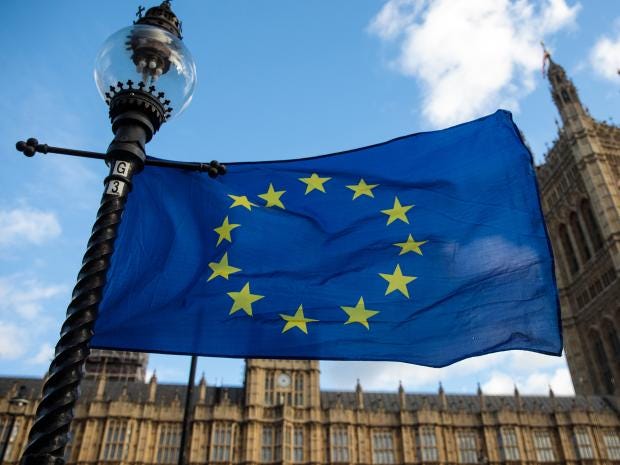An unanticipated credit to the UK from the European Union in December, sent government borrowing in the month down to its lowest in 17 years, according to the latest official data.
The Office for National Statistics reported on Tuesday that public sector borrowing was just £2.6bn in December 2017, down from £5.1bn in December 2016 and well below the £5bn that City of London analysts had pencilled in.
It was the smallest December borrowing figure since 2000.
The ONS explained that the UK’s net contribution to the latest EU budget had been £1.2bn lower than in the same month a year earlier, reflecting an agreement between member states to reduce the size of the 2017 budget and also the relative underperformance of the UK economy (which is a determinant of national contributions).
The one-off distortion overlaid an improving picture of the UK deficit.
Borrowing in the 2017-18 financial year to date is now running at £50bn, down from £56.7bn at the same stage in 2016-17.
The Office for Budget Responsibility in November had projected full year borrowing of £49.9bn, but this was based on an expectation of tax receipts deteriorating in the remaining months of the year due to income shifting last year by many households.
In December VAT receipts were up 4.9 per cent year-on-year and income tax and capital gains 5.2 per cent higher.
“Some deterioration in early 2018 still looks in prospect as strong self-assessment tax receipts collected early last year – due to changes in the dividend tax rate – won’t be repeated,” said Ruth Gregory of Capital Economics.
“As such, we doubt that borrowing will come in too much below the OBR’s current £49.9 forecast.”
Matthew Whittaker, chief economist at the Resolution Foundation, said the public finances data was “good news so far” but added that the regular self-assessment receipts for January and February would be “crucial” in determining the overall picture for the financial year.
Further out, the OBR currently expects UK public borrowing to remain quite high over the next five years, mainly due to its forecast of continued weak UK productivity growth suppressing tax receipts.
- More about:
- Public Borrowing
- deficit
- Office for Budget Responsibility


